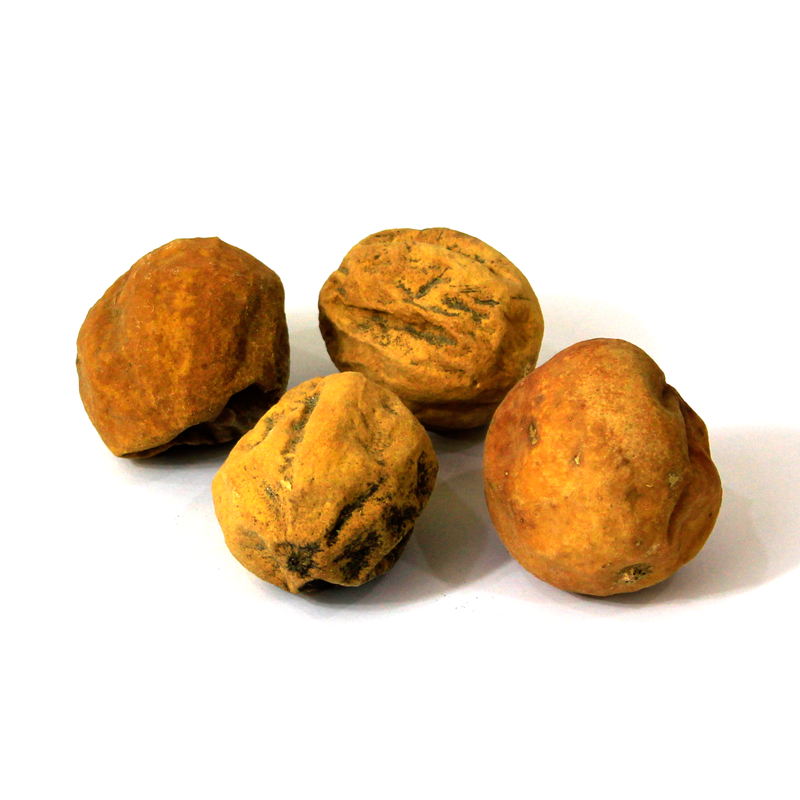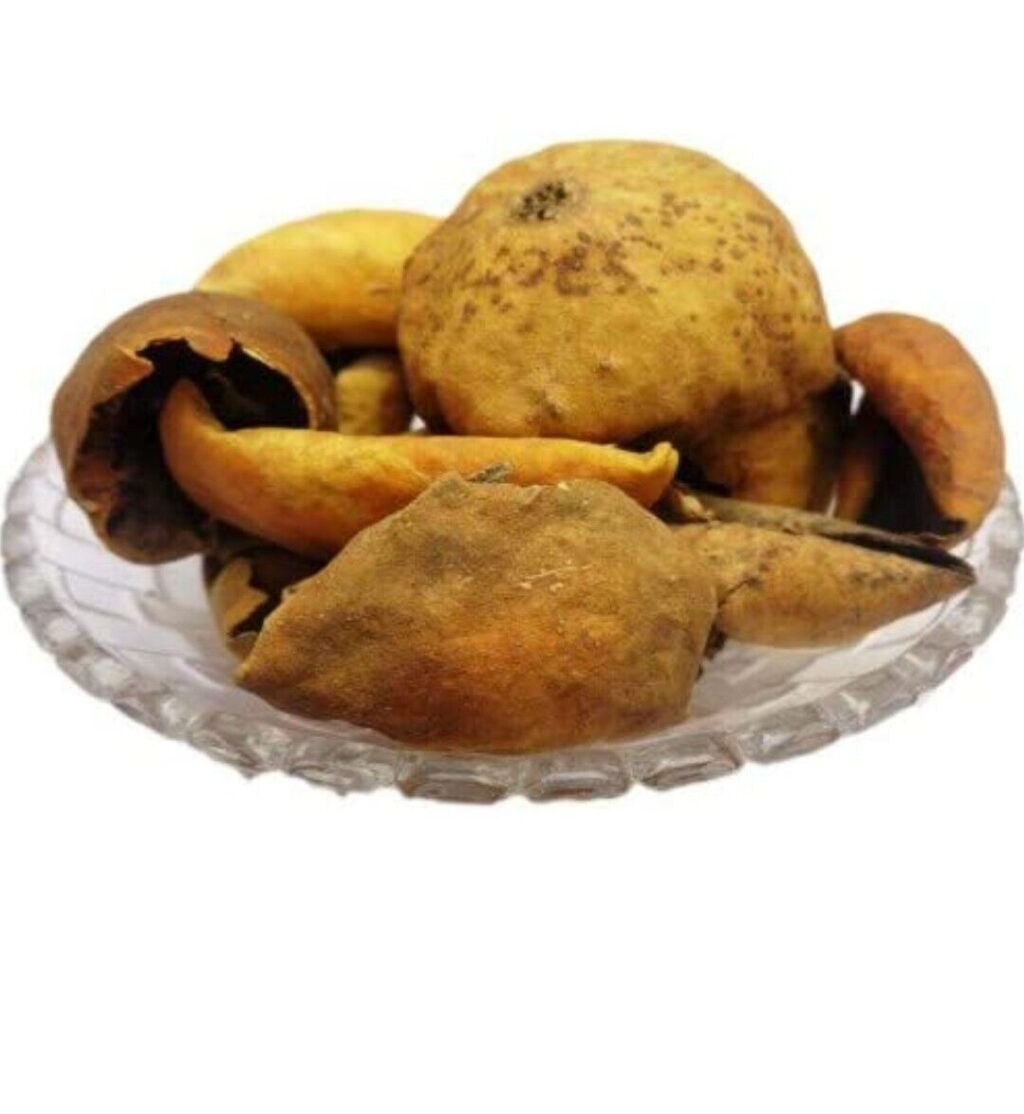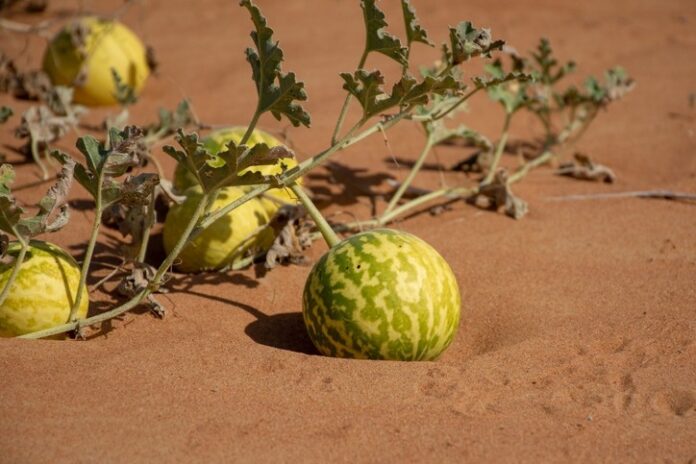INTRODUCTION
Bitter apple, also known as Citrullus colocynthis, is a flowering plant in the gourd family (Cucurbitaceae). It is native to Africa and the Middle East and is known for its bitter, toxic fruit, which contains compounds that can be harmful if ingested. Traditionally, bitter apple has been used in folk medicine for various ailments, but its toxicity limits its use. The plant typically grows as a vine and produces yellowish-green fruits that are round and have a hard outer shell.

Types
Bitter apple (Citrullus colocynthis) has several types and varieties based on regional classifications and specific characteristics. Here are some notable ones:
- Common Bitter Apple (Citrullus colocynthis):
This is the most recognized type, known for its bitter and toxic fruit. It grows in arid regions and can be found in parts of Africa, the Middle East, and India.
- Citrullus lanatus:
This is a wild ancestor of the cultivated watermelon and is sometimes considered part of the bitter apple family. It can have similar properties and characteristics.
- Bitter Melon (Momordica charantia):
While not a direct type of bitter apple, bitter melon is often associated with similar uses in traditional medicine. It has a distinct bitter flavor and is used in various cuisines.
- Regional Varieties:
In different areas, there may be specific local varieties or cultivars of bitter apple that have adapted to local climates and soils.
Forms
Bitter apple (Citrullus colocynthis) can be found in various forms, primarily based on how it is processed or used. Here are some common forms:
- Fresh Fruit:

The raw, whole fruit is typically round and hard with a bitter taste. It is not commonly consumed due to its toxicity.
- Dried Fruit:
The fruit can be dried and used in traditional medicine. This form may reduce some of its toxicity but should still be approached with caution.
- Powder:
Dried and ground fruit can be processed into a powder for use in herbal remedies. This form is often used for its potential medicinal properties.
- Extracts:
Bitter apple extracts may be prepared for use in supplements or herbal products. These can be more concentrated than the whole fruit.
- Infusions/Tinctures:
The fruit can be steeped in alcohol or water to create tinctures or herbal infusions, commonly used in traditional medicine practices.
- Topical Preparations:
Some traditional practices use the juice or pulp from the fruit for topical applications, although this should be done with caution due to its irritant properties.
Health Benefits
Here are the potential health benefits of bitter apple (Citrullus colocynthis) with more detail:
Digestive Health
Bitter apple is traditionally used as a natural laxative. The high fiber content in the fruit may help stimulate bowel movements, relieving constipation. However, excessive consumption can lead to diarrhea and gastrointestinal discomfort due to its potent effects.
Anti-inflammatory Properties
Some studies indicate that bitter apple has anti-inflammatory compounds, which may help reduce inflammation in the body. This could be beneficial for conditions like arthritis, where inflammation of the joints causes pain and swelling.
Antimicrobial Activity
Research suggests that extracts from bitter apple exhibit antimicrobial properties against certain bacteria and fungi. This makes it a candidate for traditional remedies aimed at treating infections, though further studies are needed to confirm its efficacy and safety.
Antioxidant Effects

Bitter apple contains antioxidants that help neutralize free radicals in the body. This action can reduce oxidative stress, which is linked to various chronic diseases, including heart disease and cancer.
Blood Sugar Regulation
Some studies indicate that bitter apple may help regulate blood sugar levels. It may improve insulin sensitivity, which is crucial for managing diabetes. However, more research is needed to understand the mechanisms and effectiveness fully.
Weight Management
The bitter taste of the fruit may help suppress appetite, making it potentially useful for those looking to manage their weight. Additionally, its laxative effects can contribute to short-term weight loss; however, this should not be a long-term strategy due to health risks.
Skin Conditions
Traditionally, the juice of bitter apple has been used in folk medicine to treat skin conditions like eczema and psoriasis. Its antimicrobial and anti-inflammatory properties may help soothe irritated skin. However, caution is necessary, as the juice can be an irritant and may cause adverse reactions.
Safety and Precaution
While these potential health benefits exist, it is crucial to approach bitter apple with caution due to its toxicity. The fruit contains compounds that can be harmful if ingested in large quantities, leading to symptoms such as nausea, vomiting, and abdominal pain. Always consult a healthcare professional before using bitter apple for medicinal purposes, especially if you have underlying health conditions or are pregnant or breastfeeding.




